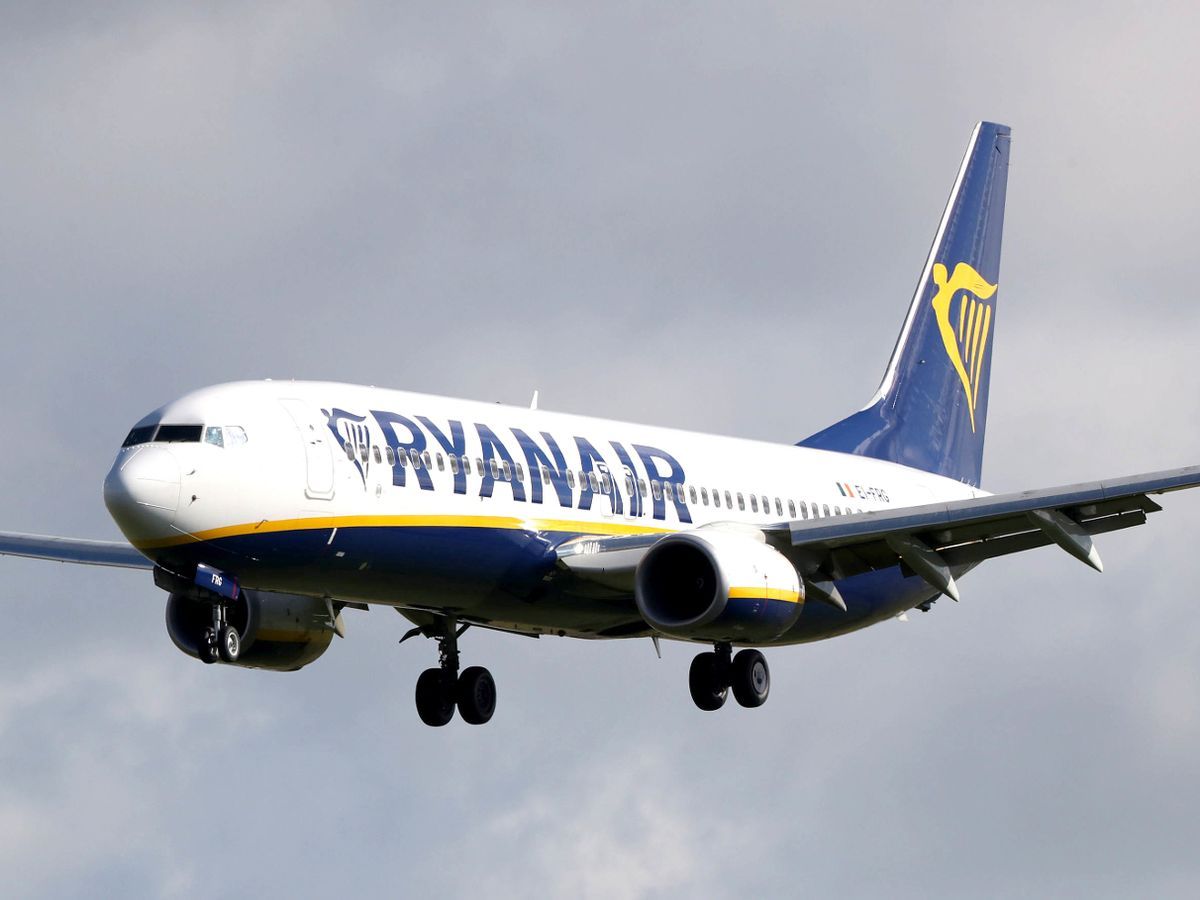Ryanair forced to pull ads claiming it has ‘lowest CO2 emissions’

A few minutes every morning is all you need.
Stay up to date on the world's Headlines and Human Stories. It's fun, it's factual, it's fluff-free.
On Wednesday, February 5, the United Kingdom’s Advertising Standards Authority (ASA) ruled that Ireland-based airline Ryanair must pull “misleading” ads. Those ads claim that Ryanair flights produce the lowest carbon dioxide (CO2) emission of any European airline. An investigation by the ASA determined that those claims were not substantiated.
CO2 is one of the main greenhouse gases and is a contributor to global climate change.
The claims in the Ryanair ads
ASA reviewed three Ryanair advertisements that aired in September 2019. The ads, which appeared in print, on TV, and on the radio in the UK, included claims like, “Europe’s Lowest Fares, Lowest Emissions Airline,” and “Europe’s low fare, low CO2 emissions airline.”
Complaints against the ads were brought to the ASA by “a consultant in energy, transport and sustainable development” among others. The ASA investigated Ryanair’s claims and the metrics the company used to determine their CO2 emission levels.
According to Ryanair, their claims were based on their “young fleet of aircraft, point-to-point routes (direct flights), fewer empty seats and higher seat density.” Additionally, their low CO2 emissions claim was supposedly meant to be interpreted as “less than average.”
The ASA determination on the Ryanair ads
The ASA concluded it would be reasonable for the audience of the ads to assume traveling with Ryanair would contribute “lower CO2 emissions than if they had chosen to travel with any other European airline.” That claim was deemed inaccurate.
The agency determined that all three ads broke three separate codes pertaining to broadcast or non-broadcast advertisements. The ASA found the ads to be misleading, lacking in substantive evidence, and insufficiently supported in their environmental claims.
Ryanair was therefore required to pull the ads.
Ryanair’s cost-saving strategy
Ryanair is a budget airline headquartered in Dublin, Ireland. It flies to 40 countries across Europe, North Africa, and the Middle East. They often offer flights for less than the equivalent of US$50 between European cities, undercutting the prices of bigger airlines.
Despite the cheap prices, Ryanair remains profitable, largely thanks to ideas borrowed from the US-based airline, Southwest. Those ideas include short-haul flights and limiting the type of planes it uses. Another way Ryanair makes money is selling advertising space in its planes.
One of their biggest moneymakers, though, is “ancillary revenue”, or add-on fees. Ryanair charges for all checked bags, priority seating, and even selecting a seat, among other options. Purchasing a ticket on a Ryanair flight is merely buying a seat, nearly everything else costs extra.
A history of misleading customers
This isn’t the first time Ryanair has been accused of misleading its customers. In 2017, the airline canceled thousands of flights and told customers it was not obligated to reschedule those flights. The Civil Aviation Authority stepped in following the airline’s claim, stating that Ryanair was “persistently misleading passengers” about their rights.
Due to scheduling issues with its staff, Ryanair also ended 34 flight routes from November 2017 to March 2018. A pilot strike in December 2017 made things even worse for the company.
Global CO2 emissions
According to the Center for Climate and Energy Solutions, CO2 emissions have been consistently rising since the beginning of the 20th century. Yet, despite efforts to reduce pollution, emissions are projected to continue to rise over the next few decades.
While the US and the EU have reduced their emissions since 2000, they remain the second and fourth highest producers of greenhouse gases. In addition, US and EU reductions don’t offset the rising emissions from China and India, the first and third highest producers of greenhouse gases.
Efforts to reduce greenhouse gas
The EU has set targets for reducing greenhouse gas emissions for its 27 member states, with the ultimate goal of being climate-neutral by 2050. This comes at a time when the UN has warned that the planet only has 10 years to prevent mass extinctions due to climate change. With multiple countries declaring climate emergencies, efforts are being made to try and reduce greenhouse gases in novel ways.
Though flying only accounts for 2% of the world’s global CO2 emissions, the aviation industry is taking steps to make positive changes.To this end, the industry is focusing on the development of biofuels as an alternative to standard fossil fuels, which are the leading cause of CO2 emissions. Biofuels (also called sustainable aviation fuels) would potentially cut the carbon footprint of airlines by 80%. Other methods include creating more aerodynamic airplanes that would require less fuel.
[article_ad]




Comments ()